It is no doubt that the battery-powered vehicles are taking over automotive market. Despite the COVID-19 pandemic, there has been a significant growth in the xEV (Electric Vehicles) market with xEV sales going up at a fast rate. In addition to the positive trend, Thai Government is also pushing the infrastructure of electric vehicle charging station and introduced tax incentives.
With the support of Wisesight’s Social Media Analytics, Cint’s Online Consumer Panel, and Custom Asia Research team, an online survey with a sample size of 100 was conducted from Oct - Nov 2022 to capture the xEV intenders sentiments and explore customer criteria on purchasing xEV cars. The key findings are listed below.
There is an acceleration of xEV adoption with 67% of the respondents are planning to purchase Battery Electric Vehicle (BEV) in the next 6 months. The top reasons mentioned by over 85% of respondent are cost saving in term of tax benefits and energy cost, follows by environmentally friendly.
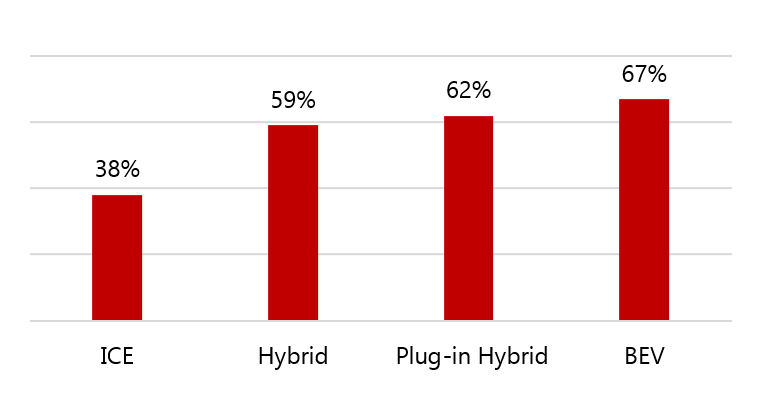
xEV = Electric Vehicles in general, where the ‘x’ stands for some of the additional acronyms defined below.
ICE = Internal Combustion Engine
HEV = Hybrid Electric Vehicles
PHEV = Plug In Hybrid Electric Vehicle
BEV = Battery Electric Vehicle
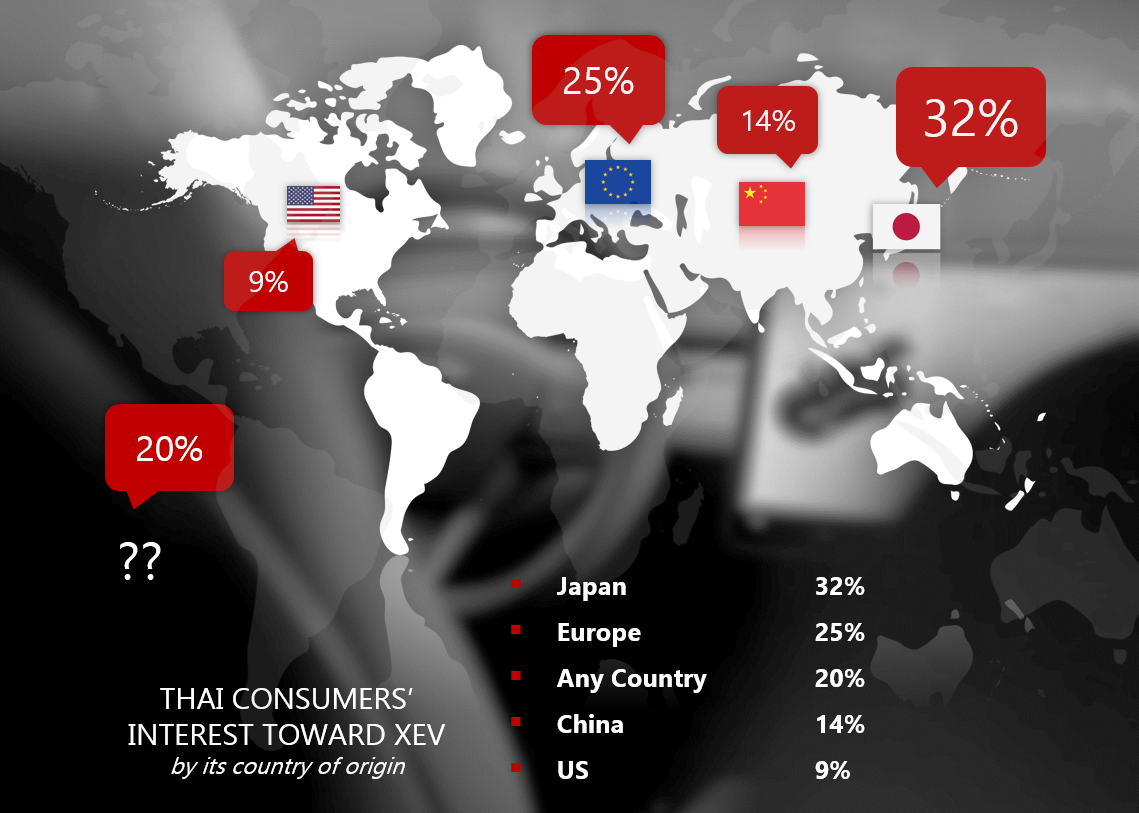
As the race to automotive electrification continues, currently the major countries that play an important role in electric vehicle market are China, Europe, and the U.S. which account for 95% of global xEV sales. Therefore, with millions of cars produced every year from different countries and various car brands, the perspective and value given to xEVs are different by its country of origin.
The research has shown that 32% of respondents would highly purchase xEV with Japanese car brand, while 25% of the respondents prefer European car brand when it comes to purchasing their upcoming xEV. Interestingly, 20% of respondents stated that their next xEV can be any country of origin, and only 14% of respondents prefer Chinese brand.
Different perspective and value
towards different country of origin
JAPANESE CAR
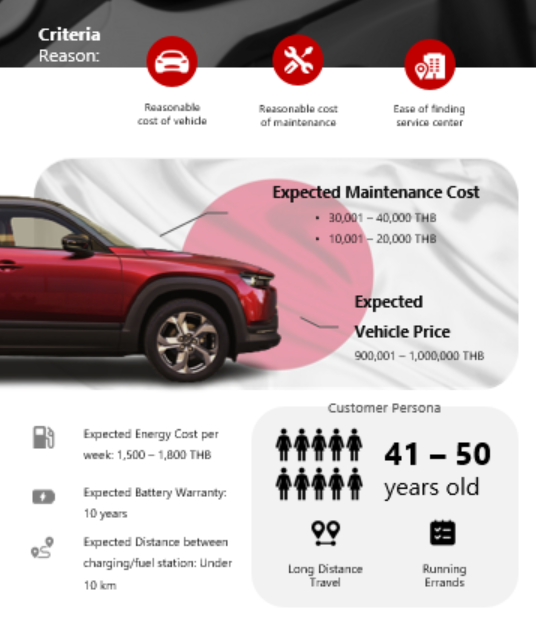
Different perspective and value
towards different country of origin
EUROPEAN CAR
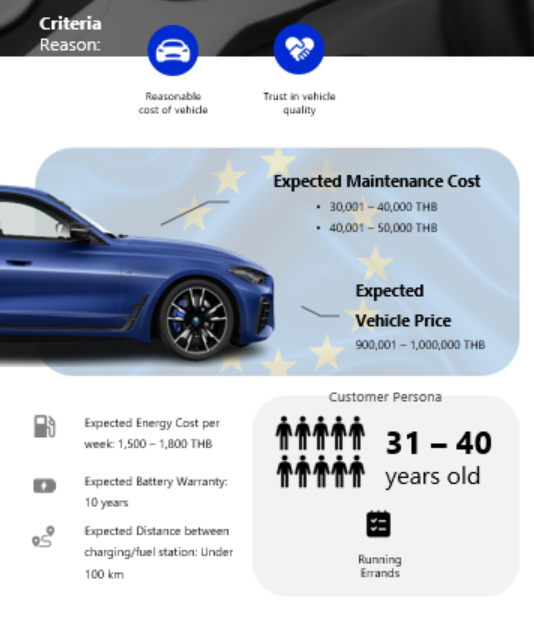
Different perspective and value
towards different country of origin
ANY COUNTRY
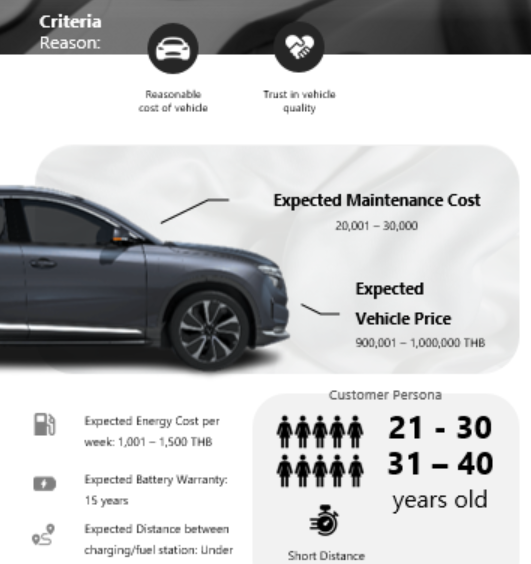
Different perspective and value
towards different country of origin
CHINESE CAR
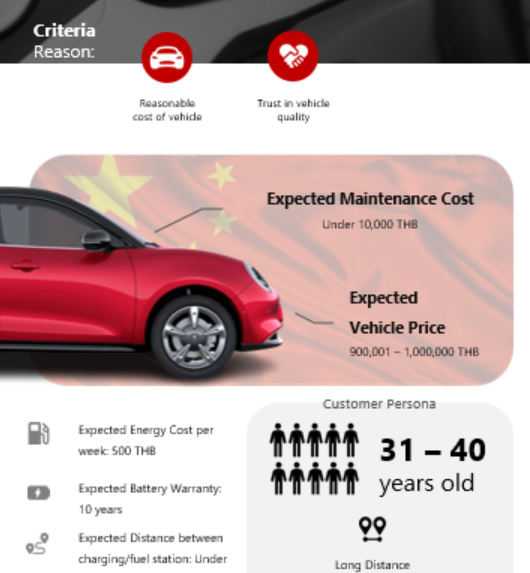
Different perspective and value
towards different country of origin
US CAR
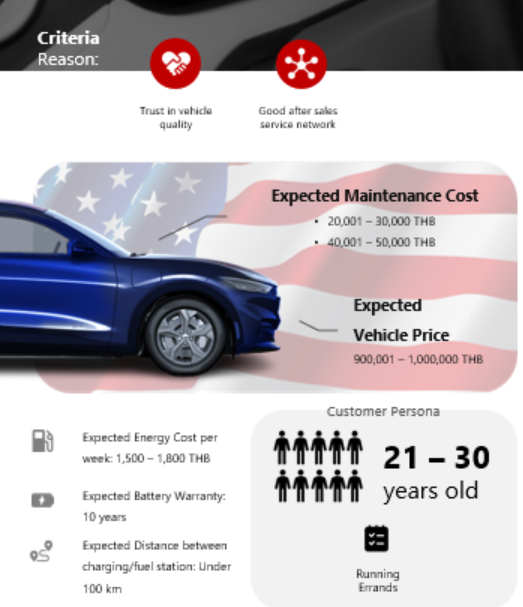
THAI CONSUMERS’
INTEREST TOWARD XxEV
by its country of origin (Summary)
| JAPANESE | EUROPEAN | CHAINESE | US | |
|---|---|---|---|---|
| Reason | Reasonable cost of vehicle
Reasonable cost of maintenance Ease of finding service center |
Reasonable cost of vehicle
Trust in vehicle quality |
Reasonable cost of vehicle
Trust in vehicle quality |
Trust in vehicle quality
Good after sales service network |
| Expected Vehicle Price (THB) |
900,001 - 1,000,000 |
900,001 - 1,000,000 |
900,001 - 1,000,000 |
900,001 - 1,000,000 |
| Expected Maintenance Cost (THB) |
30,001 – 40,000 10,001 – 20,000 |
30,001 – 40,000 40,001 – 50,000 |
Under 10,000 |
20,001 – 30,000 40,001 – 50,000 |
| Expected Battery Warranty | 10 years warranty | 10 years warranty | 10 years warranty | 10 years warranty |
| JAPANESE | EUROPEAN | CHAINESE | US | |
|---|---|---|---|---|
| Expected Energy Cost per week |
1,500 – 1,800 | 1,500 – 1,800 | Under 500 | 1,500 – 1,800 |
|
Expected Distance between charging / fuel station |
Under 10 km | Under 100 km | Under 100 km | Under 100 km |
| Age | 41 - 50 Years | 31 - 40 Years | 31 - 40 Years | 21 - 30 Years |
| Gender | Female | Male | Male | Male |
| Lifestyle |
Long Distance Travel Running Errands |
Running Errands | Long Distance Travel | Running Errands |
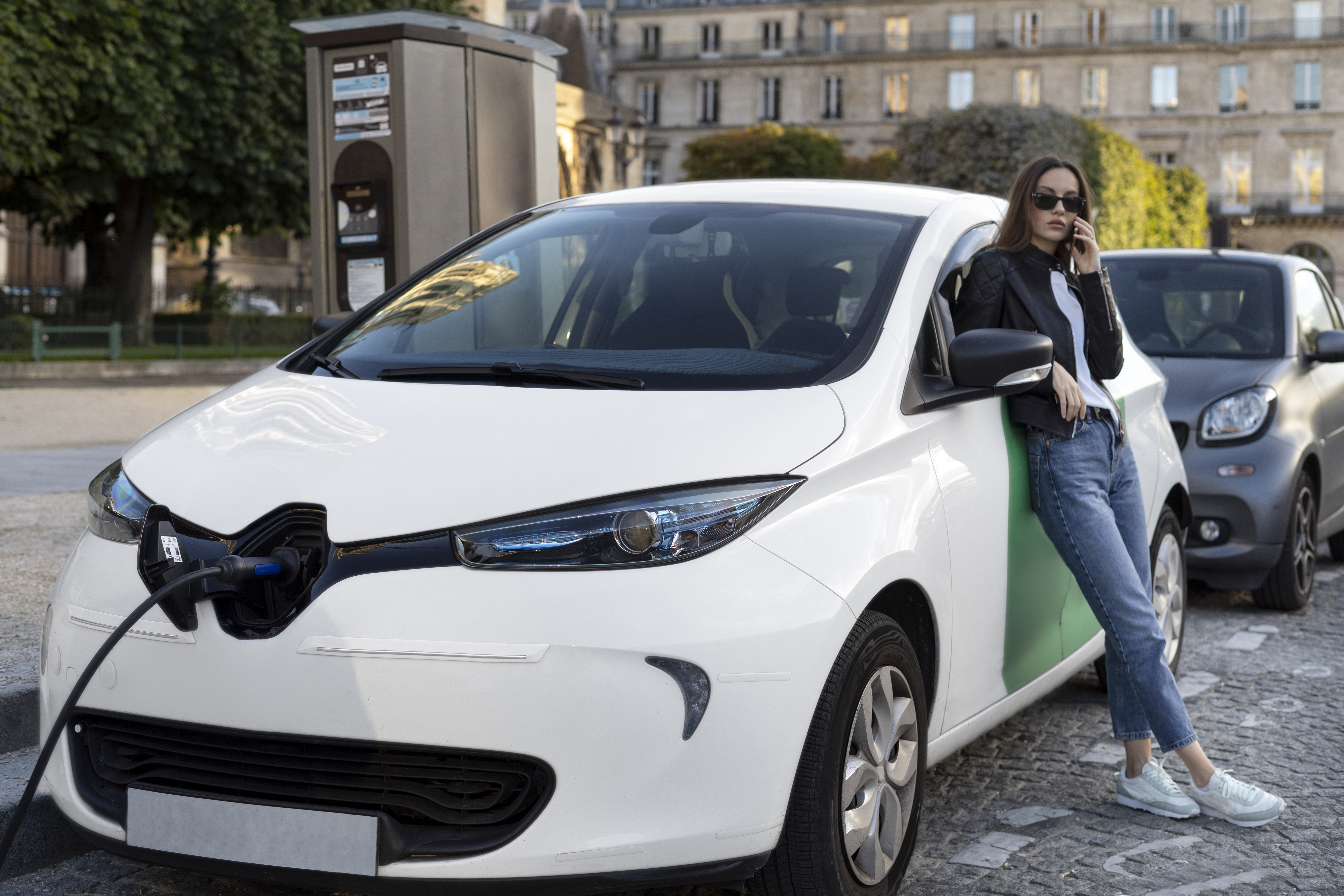
According to our research, the reasons behind Thais prefer Chinese and European car brand are reasonable price of vehicle and follows by trust in quality. Similarly, for those who prefer Japanese brand, the main reasons are reasonable price of vehicle and cost of maintenance. Whereas trust in vehicle quality is the top reason by who prefer US car brand.
Surprisingly, the appropriate vehicle price is around 900,001 – 1,000,000 THB for all intenders despite different desired country. The expected maintenance cost from all intenders are varied depending on its country of origin.
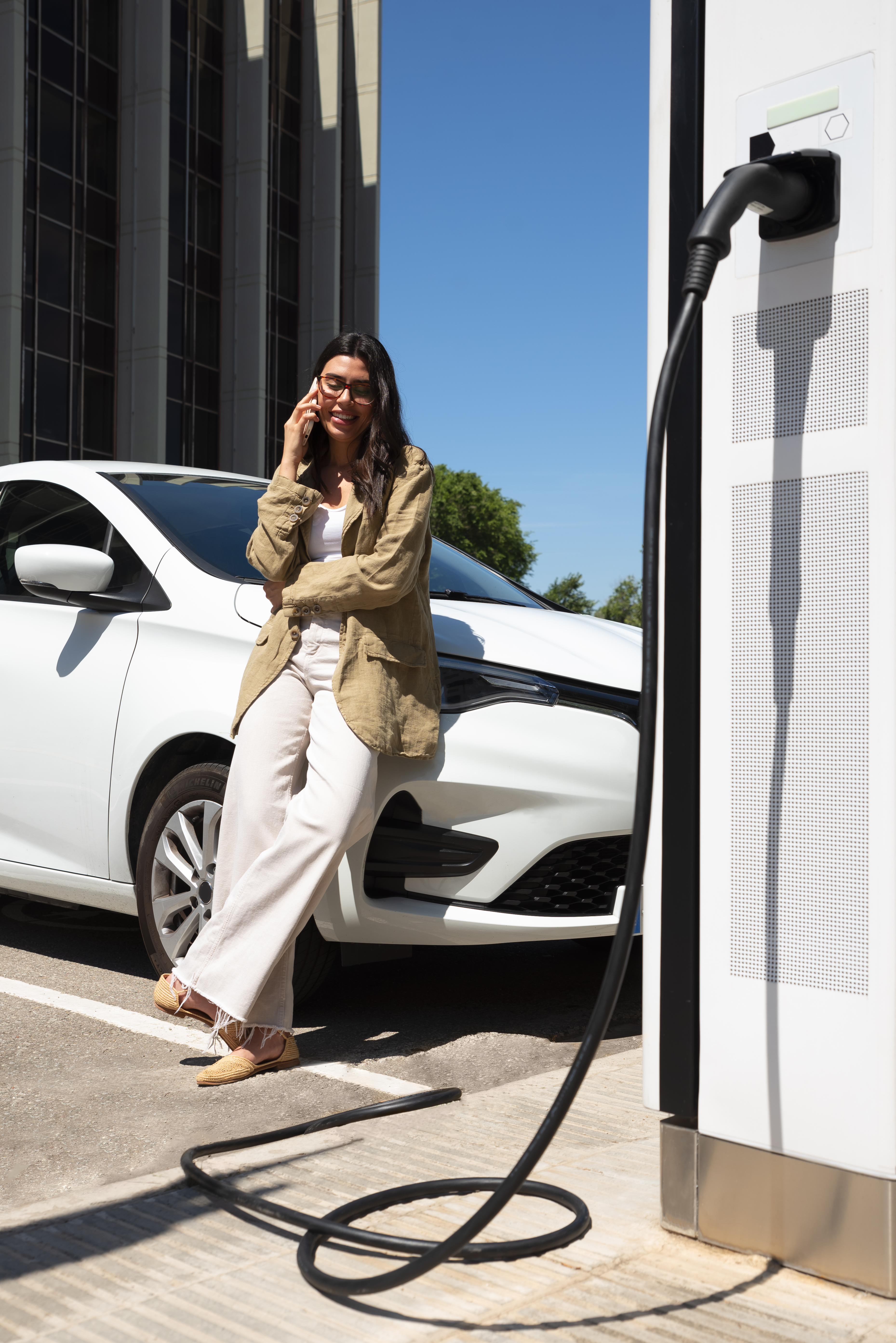
Those who are interested in xEVs from Asia seems to have expectation towards lower cost of maintenance when comparing to those who are interested in European and US xEVs.
The energy cost per week is expected to be under 500 BHT for Chinese car intenders. Whereas 1,500 – 1,800 THB is an acceptable energy cost per week by other intenders
The battery warranty must be 10 years warranty in order to increase all intenders willingness to purchase xEVs
The preferred appropriate distance between charging station for Chinese and Japanese brand intenders are only under 10 km. While for European and US intenders are under 100 km. This reflect Thais trusted in European and US car quality in term of driving range and battery performance.
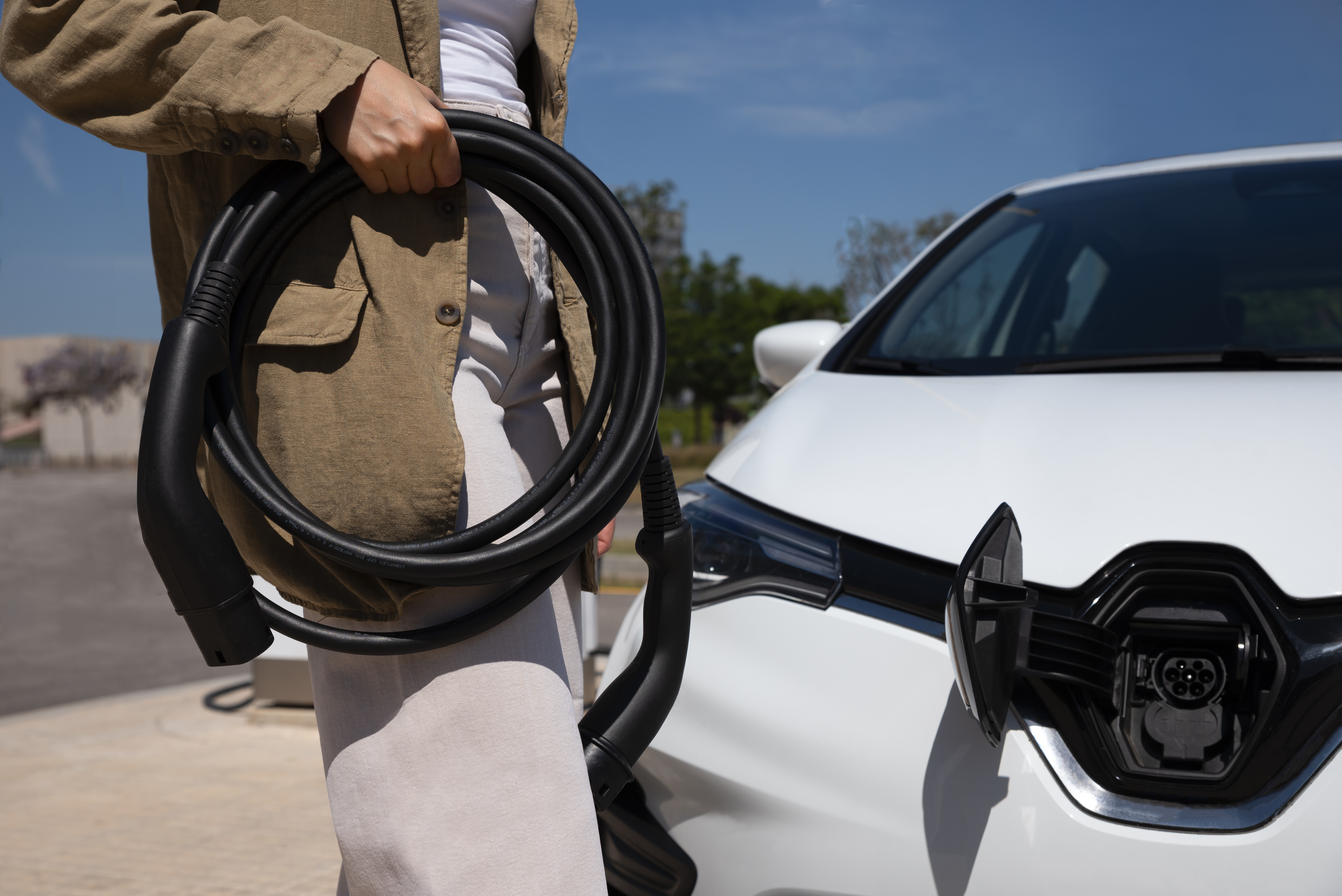
The US car brand is mostly preferred by younger generation when comparing to Chinese and European car brand, while the older generation tend to purchase Japanese car brand. The popular country of origin for male intenders are Chinese, European and US due to the fact that male have more knowledge on each brand profile when comparing to female they prefer Japanese car brand because it is well known for reliable.